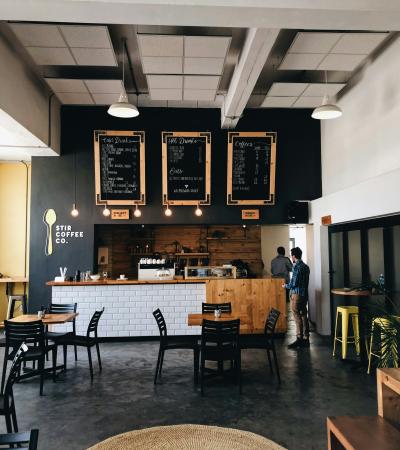As U.S. libraries prepare for the novel coronavirus pandemic that is sweeping the globe, our fellow librarians in Italy are in the thick of the outbreak. Shops, bars, and yes, libraries are closed to the public as Italians follow orders to stay at home and practice social distancing to minimize the virus's spread.
But not all librarians have stopped working just because the libraries are empty. Many are finding creative ways to serve their communities from afar. Here, we speak to two librarians about what the lockdown means for them.

Carlo Ghilli
Head of Cultural Heritage Library Services
Public Library of Empoli, Tuscany
Programming Librarian: Thank you for speaking with us, Carlo. Can you describe the atmosphere in your library and on the streets?
Carlo Ghilli: The Empoli library is a medium-small library, serving a town of 50,000 inhabitants located right in the center of Tuscany. In normal times about 400 people a day pass through the Library of Empoli — many children, school groups and the elderly. We have many university students.
Today entering the library is surreal. The rooms are empty, and the warning signs we had displayed in the first days of the emergency still remain on the tables. Only my colleague Virginia and I are working in the office. The other librarians are at home, put on a forced vacation by the municipal administration.
We also encounter that dystopian scenario in the streets. All the shops are closed in the squares of our usually lively town. Only the grocery stores are open and few people are allowed in at a time.

How are libraries dealing with this situation?
Sergio Mattarella, the president of Italy, said, "Reading is a way to raise hopes, to cultivate them, to share them." Italian librarians believe that reading will help us get through this terrible moment.
The Italian situation is very serious. As you know, our libraries have been closed for about a week and have offered reduced services for 20 days. Early in the outbreak we thought we could keep the library open by placing limits on how many people could enter at once, but we were eventually forced to close completely.
So we decided to incentivize the digital loan services, Media Library On Line (MLOL), a digital loan platform that for Tuscany is guaranteed by the regional administration. The administration of the Tuscany Region is currently increasing the supply of e-books and audio-books present on MLOL and the consultation fees of periodicals and online newspapers.
What has this meant in terms of programming and outreach?
My library has activated a collaboration with some famous Italian writers of children's books to make video recordings of their presentations and reading tips available on Facebook. The Facebook event is called Niente Paura è Più Forte la Lettura (No Fear, Reading is Stronger). We also offer remote reading services and we stream our usual Tuesday Readings. Throughout Italy, other libraries have also been organized in for similar services.
Another very important public library of Tuscany, the San Giorgio Library of the municipality of Pistoia, is offering a service of storytelling by telephone. This service is named Favole al Telefono, just like the famous book for children written by Gianni Rodari.
But as the law prevents most of us from working at library locations, it is difficult for us to offer remote services that require some organization. So we are working to be able to record video interventions in different locations and to be able to transmit them.


Maria Stella Rasetti
Director
San Giorgio Library, Tuscany
Pistoia Department of Culture, Tourism and IT Service
Programming Librarian: What is the situation at your library?
Maria Stella Rasetti: All the libraries in Italy are closed to the public until April 3, and we don’t know what will happen after that day.
For now, the majority of my colleagues are working in back office, communicating with patrons via Facebook and our website, rearranging and tidying up the collection (as we never are able to do during the year!).
How are you reaching your homebound patrons?
Above all, we are trying to keep in touch with our beloved users (or members, as Professor R. David Lankes says) who are forced to be at home. We are recording short videos with reading aloud for kids and teens, posting videos teaching origami and more.
We are collaborating with some writers who are available to read their stories out loud for our users. We record them and publish the videos on our Facebook page.
What is the mood among your colleagues?
Spending our time away from our users is so strange … we are separated from the targets of our mission! But we are strong and full of hope. We want to believe that within a handful of weeks we’ll celebrate the end of this bad story all together in a library full of people.


